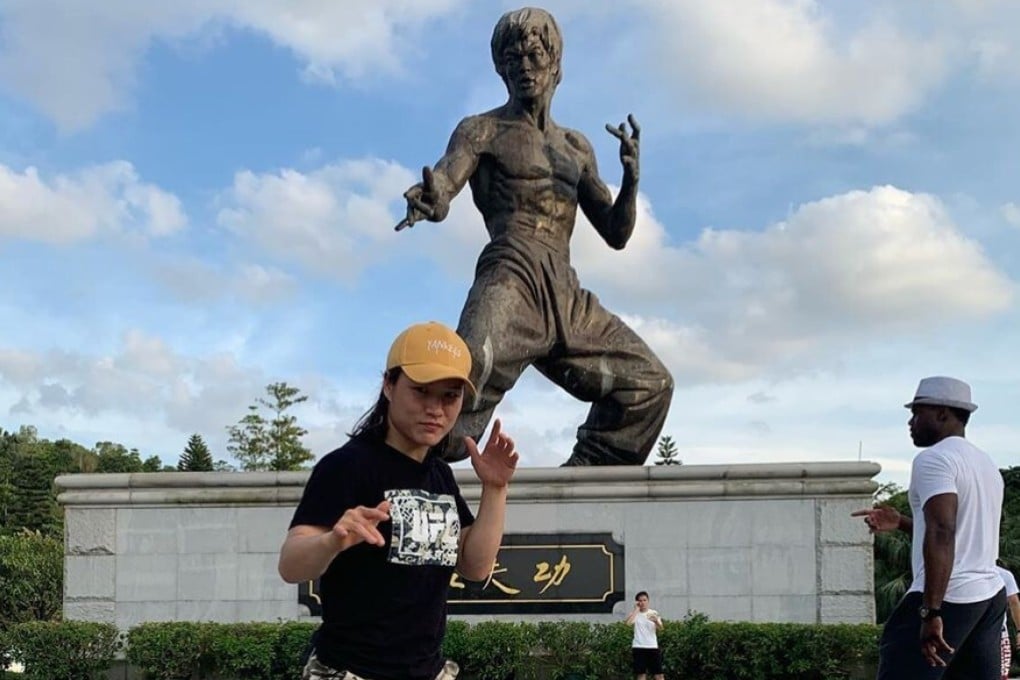‘Be water’: how Bruce Lee inspired UFC champ Zhang Weili and China’s rising MMA stars
- Zhang Weili recalls becoming ‘formless, shapeless’ – just like Bruce Lee preached – when she won the UFC strawweight title in Shenzhen
- Song Yadong, Li Jingliang, Yan Xiaonan, and Xiong Jingnan also discuss Bruce Lee’s impact on their careers as ESPN’s 30 for 30 returns spotlight to martial arts legend

Zhang “Magnum” Weili’s rise to become the UFC’s first Chinese champion has been etched into MMA folklore.
The victory came, on August 31 last year in Shenzhen, when Zhang demolished Brazil’s Jessica Andrade in just 42 seconds to claim the strawweight crown.
The seeds of inspiration had been sown years before, when Zhang had dreamed that one day she might “fly” like the martial arts heroes she had witnessed in China’s famed wuxia films, and she had seen a clip of Bruce Lee’s famous “Be water, my friend” speech, first screened on television in 1971.
It was after the Andrade fight, when left to her own thoughts, that Zhang penned a personal essay for The Players Tribune that revealed just how much the moment meant, and how it forced her to reflect back on watching that clip, all those years ago.
“When I think of the fight itself, it is hard to put it into words what I was feeling,” Zhang wrote. “I was just so relaxed, so at peace, almost in a spiritual state. I was in that magical zone where you can see your opponent’s moves in slow motion.